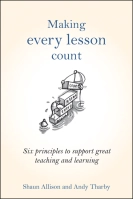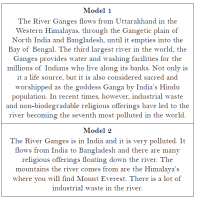This year, the Durrington Research School Team have been working on producing a new ‘Curriculum, Teaching and Assessment Policy’. The aim of this policy is to ensure that through curriculum, teaching and assessment all students, especially those in at-risk sub-groups, will:
- Make significant academic progress over their 11 years at school.
- Develop and retain the knowledge (declarative i.e. knowledge you can think about and say and procedural i.e. knowledge you can do) and cultural capital (including relevant tier two and tier three vocabulary) that will enrich their experience and empower them to access, the next stage of their education, find suitable employment and participate in a democratic society.
- Value learning for its own sake and develop a range of skills, aptitudes and personal qualities to take into life. These will include non-cognitive skills (such as resilience, working with others, acceptance of feedback and kindness), metacognitive skills (such as planning, monitoring and evaluation) and study skills (such as retrieval practice, spaced practice and dual coding).
We have invested our time and effort into this, because we feel there is a moral imperative for decisions about curriculum, teaching and assessment to be informed by the best available evidence and the practical wisdom of the most effective teachers. This has framed our policy.
Curriculum, teaching and assessment are inextricably linked. When all three are aligned and of the highest quality, they should facilitate effective learning for all students, irrespective of their starting points. In turn, this should translate into all students making good progress and achieving strong academic outcomes. This matters, because it gives them the best possible life chances.
The curriculum outlines the key knowledge that students need to learn over their time with us in order to be successful; this will then drive what and how we teach. A challenging curriculum will require students to think deeply about subject and lesson content. In other words, the level of challenge in the curriculum sets the level of challenge in our classrooms. Tom Sherrington has written an excellent blog talking about what we mean by a knowledge rich curriculum. He suggests four components:
- Knowledge provides a driving, underpinning philosophy;
- The knowledge content is specified in detail;
- Knowledge is taught to be remembered, not merely encountered;
- Knowledge is sequenced and mapped deliberately and coherently.
Next, we need to consider how to enable effective learning. When we talk about learning, we mean the retention and recall of knowledge so that it can be applied in different contexts. It should be durable and flexible. For this to happen, a deep understanding of the ‘active ingredients’ of teaching based on the best available research evidence is required. This is what our six pedagogical principles aim to do; however, these must be contextualised to different curriculum areas.
Assessment can be seen as the bridge between teaching and learning. Dylan Wiliam describes this well:
“It is only through assessment that we can find out whether what has happened in the classroom has produced the learning we intended.”
Valid and reliable assessment should inform our planning as teachers and leaders. For example, if assessment reveals students have not fully learnt a particular topic, then it would seem sensible for a class teacher to re-teach that topic or relevant aspects of that topic. On a wider scale, it would also be worth reviewing the curriculum to see how that particular topic is being covered – e.g. is the level of challenge too high or too low? Is it in the right sequence relative to other topics that are needed to understand it?
Another aspect of assessment that should be considered is the balance between formative and summative assessment. In this blog post, Chris Runeckles explores the importance of a two layered approach to assessment:
Layer 1: Formative – on-going, ungraded and focused on smaller chunks of the curriculum.
Layer 2: Summative – At set points in the year. Knowledge included will build cumulatively through the year.
Professor Rob Coe claims that all too often data production that is claimed to be assessment, is not actually an assessment. He claims that assessment must be:
- Informative
- Accurate
- Independent
- Generalisable
- Replicable
Rob makes the point that data should not be a dirty word. However, we probably need to work a bit harder to make it more useful. You can read more on this here.
Here’s a summary of the three strands of the policy:

Implementing this policy will be a key focus of our work within school over the coming years. As a starting point, Curriculum Leaders have been reviewing their current practice in each of the three areas, and setting themselves development foci for next year and beyond.
Keep an eye out for future blogs on the progress of this work.
Posted by Shaun Allison











Reblogged this on DT & Engineering Teaching Resources and commented:
Curriculum, Teaching and Assessment
Pingback: Knowledge Organisers: Tackling the Misconceptions | Class Teaching
Pingback: Knowledge Organisers: Tackling the Misconceptions | Kesgrave High School